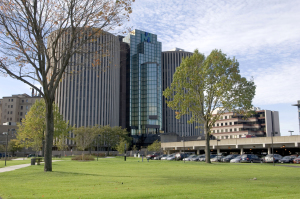In light of the seemingly ever increasing grim news in and about Cleveland, what are we to do? Some make lists of the positive aspects of the city (which really is pretty great, despite missing a few key aspects!). Others simply grumble about how we’re falling apart and failing without offering constructive suggestions. Still others are just happy we’re not Detroit.
There are themes like this around the world. How are they addressed? Has anyone found an escape from the war-torn cities, vacant lots, food deserts? Recently, National Public Radio reported on a small group’s novel approach to volunteerism and civic engagement in Estonia, the Bank of Happiness. The Bank emerged in 2008, during Estonia’s own economic crisis. While it was not a reaction to the recession, it seemed to fit the needs of the community at a very vulnerable time. The premise is simple: post an ad for a service that you can provide or that you need. It’s like Craig’s List for people thinking and acting with their hearts. No money or products are exchanged – simply services given freely to those in need. The Bank gives an opportunity to give back and also a safe place to ask for help.
Ads offering assistance on the site run the gamut from IT assistance and informal counseling (the most popular offers) to massages and help around the house. The most popular ad requesting help is for renovation and building needs. (This is interesting since this is also the least frequently offered area of assistance.) Other needs include instruction for learning languages and instruments, assistance in starting a company, and developing friendships or pen pals.
According to the founders of the Bank, they are convinced that the formula for happiness lies in noticing others. One way this is illustrated lies immediately on the Bank’s homepage. It utilizes Google Maps to literally show where the active members are in the world and how they are connected.
The Bank of Happiness is a wonderfully global concept. What about a local initiative? Are we taking the time to notice each other here at home? Is the current news cycle indicative of the answer that we are not watching out for each other? Get involved!

